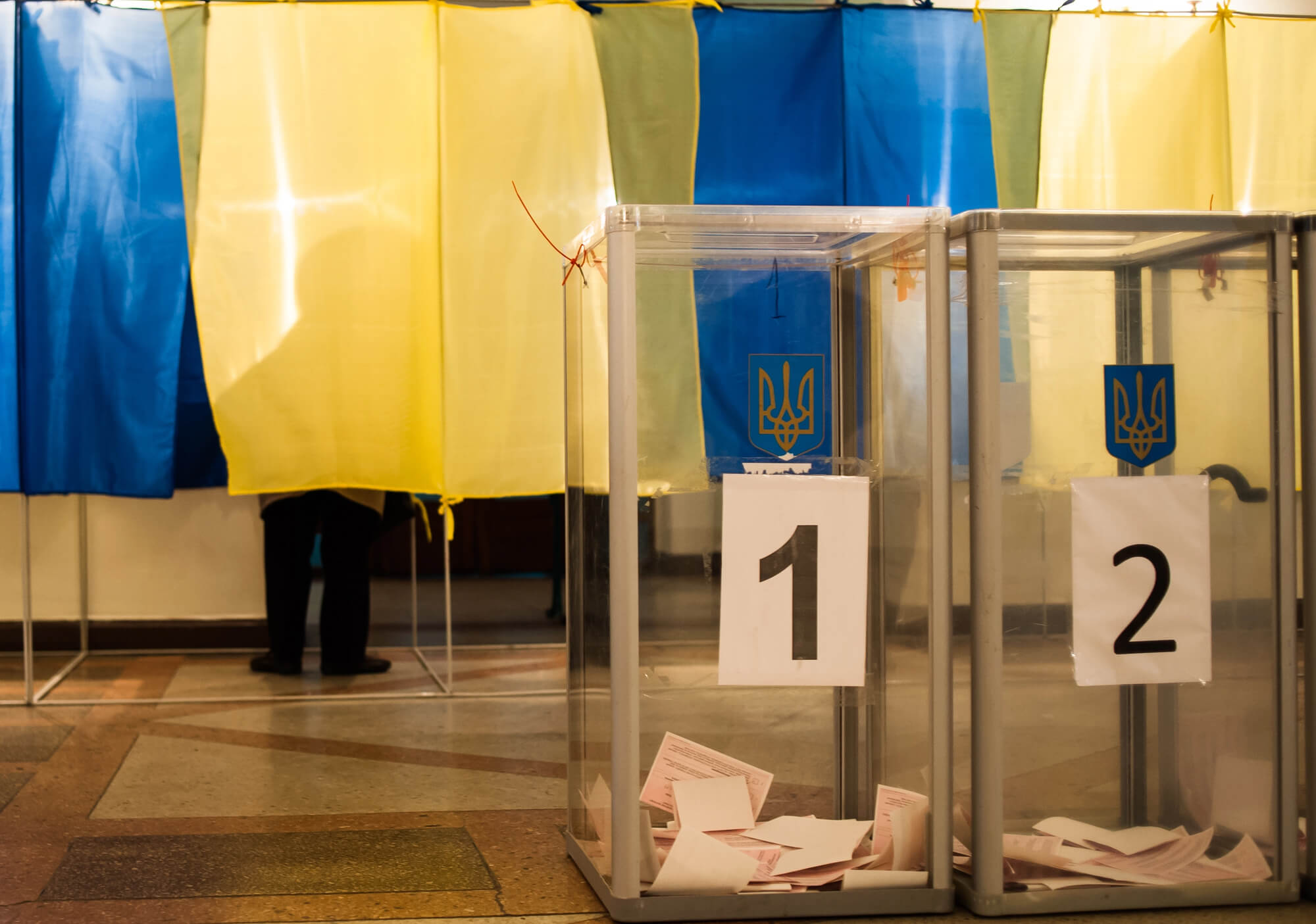When the Minsk Protocol and its follow-on Memorandum were signed last September, I believed there was almost no chance that they would be fully implemented – writes Edward Walker in the blog. Full implementation is even less likely now. There is, however, at least some chance that a ceasefire could take hold that would allow for a genuine “freezing” of the conflict.
The real choice for Kyiv now is whether to push for a stable frozen conflict along a new line of demarcation or to fight hard for every inch of ground, which increases the risk that we will see an unstable war of attrition and more Ukrainian human, material, and territorial losses in the months to come.
When the Minsk Protocol and its follow-on Memorandum were signed last September, I believed there was almost no chance that they would be fully implemented. Full implementation is even less likely now. There is, however, at least some chance that a ceasefire could take hold that would allow for a genuine “freezing” of the conflict.
However, for reasons I outlined in earlier posts (see, for example, “Why a frozen conflict in the Donbas is unlikely”), I believe that a lasting ceasefire will require at least the following: (1) Ukrainian withdrawal from beyond artillery range of Donetsk and Horlivka and northward from the Debaltseve salient; (2) agreement on a new line of demarcation; (3) agreement on the withdrawal of all forces, including but not only heavy weapons, from a buffer zone (presumably 30km wide, as per the September 19 agreement); and (4) the establishment of a peacekeeping force – for example, a joint Ukrainian/Russian/OSCE force – to patrol and monitor the buffer zone.
Other provisions in the Minsk agreement will have to be dropped. There is no chance all foreign fighters will withdraw from the separatist zone; no chance that the OSCE, let alone Ukraine, will exercise any kind of control of the border between the DPR/ LPR and Russia; and no chance that laws passed in Kyiv on decentralization, elections, or whatever, will have any writ in the DPR/LPR.De facto, a ceasefire will leave the DPR/LPR as an unrecognized breakaway state (or perhaps two unrecognized breakaway states).
This is what we have had, for the most part, in Nagorno-Karabakh, Abkhazia, and South Ossetia for years. I also believe it is much the least-worst option for Kyiv at this point, which will not be able to prevail militarily over Russia and its proxies in the Donbas for years, if ever.
Indeed, the military situation for Kyiv is likely to get much worse over the next several days or perhaps weeks. Russian/separatist forces have reportedly taken a key town (Vuhlehirs’k) on the east side of the Debal’tseve salient. If so, that would put the key evacuation route for Ukrainian forces in and around Debaltseve – perhaps as many as several thousand troops – in artillery range of the separatists, thereby preventing an orderly Ukrainian retreat from the area.
A stable ceasefire, practicable demarcation line, separation of forces, and a buffer zone overseen by monitors and (preferably) armed peacekeepers (the Transnistria model) would require Kyiv to give up on restoring sovereignty (not de jure but de facto) over the separatist zone. It would also mean establishing new defenses to the west of Donetsk and Horlivka and north of the Debaltseve salient, including possibly north of Artemivs’k. But all alternatives are worse. Moscow may well continue to enable the separatists to attack Ukrainian forces along the line of control for months or even years. Worse yet, it may decide at some point to intervene openly with aviation or ground forces in the conflict zone. And it might decide at some point to launch a full-scale attack on the Ukrainian military and economic infrastructure well beyond today’s conflict zone.
A stable frozen conflict in the Donbas would be hard for Kyiv to accept, but it would also be a bad outcome for Moscow.
At best it would be a face-saving measure for Putin, leaving him in a position to claim that he has restored Russian sovereignty to Crimea and helped defend “compatriots” in eastern Ukraine. But it would leave Kyiv free to move as rapidly as possible into the Western orbit, the West free to provide Kyiv with economic and military assistance, and NATO free to build up its eastern defenses. Nor would it do anything to improve the prospects for Putin’s “Eurasian Union” or help Moscow overcome the tensions in its relations with Kazakhstan and Belarus. And it would leave Moscow responsible for restoring the DPR’s and LDR’s devastated economies but not guarantee a lifting of Western economic sanctions on Russia.
That a frozen conflict in the Donbas is a bad outcome for Moscow is one reason why I have been skeptical that Moscow would accept it. But it might, particularly given Russia’s economic prospects, growing pressures on Russian military spending, and Moscow’s deteriorating security situation (e.g., NATO’s buildup in the Baltics and elsewhere along its eastern flank, the prospect of increased U.S. and Western military assistance to Ukraine and Georgia, and tensions between Moscow and two important military allies, Belarus and Armenia). As this suggests, I think Moscow would be more likely to accept a frozen conflict in eastern Ukraine if Washington and Bonn signaled that the Western powers were ready to engage in serious negotiations with Moscow over NATO expansion and force dispositions.
At any rate, my view is that the Ukrainian leadership should focus like a laser beam on trying to bring about a stable frozen conflict in the Donbas. If I were a Ukrainian citizen, I would not want a full-scale war with Russia, to put it mildly. Neither would I want to bear the economic and political costs of returning the breakaway regions to Ukrainian sovereignty (which in any case is not possible). I would want Kyiv to withdraw its forces from Donetsk city and the Debaltseve salient, establish the most defensible front lines possible to the west and north using whatever rivers, lakes, and reservoirs were available, and then do its best to arrange a ceasefire, separation of forces, and international monitors and peacekeeping forces to freeze the conflict for the foreseeable future.
It is of course possible that Moscow would not agree to this arrangement, but if so Ukraine would then be in a much better position to convince Western governments, and above all the Obama Administration, to significantly increase military assistance to Kyiv.
At the same time, I believe Western governments should stop insisting on full implementation of the Minsk agreement and push instead for a stable frozen conflict based on a new line of contact. Continuing to insist on full implementation of the Minsk agreement is to insist on something that is not going happen. To that end, Western governments should quietly suggest to Kyiv that fighting for every inch of ground is probably a bad idea for military and especially political reasons, and that a strategic retreat to lines that might allow for a frozen conflict would be wise. Western governments could also quietly inform the Kremlin that if it pushes too far – and especially if it or its proxies assault Mariupol or attempt to establish a land corridor to Crimea – they will begin providing Ukraine with enough military assistance, including provision of lethal weapons, to raise the costs of Russian intervention significantly. I do not think the Kremlin wants all-out war with Ukraine, particularly a Ukraine that is getting significant military assistance from the West.
Finally, I think the Obama Administration, in consultation with its NATO allies, should signal Moscow that it would like to restart serious arms control negotiations with Moscow and was willing to discuss a new security architecture for Europe that would accommodate at least some of Moscow’s security concerns.
Of course, all this entails risks, especially for Kyiv. It is possible that drawing back from current positions would put Ukrainian forces at risk and that Moscow and its proxies will continue to press forward regardless. I think that is unlikely, however. I do not believe that the separatists will be able to take much more territory than they already have unless Moscow escalates its involvement dramatically – for example, by using aviation. It will in any case be very difficult for Moscow and its proxies to take cities like Kramatorsk, Slovyansk, or Mariupol. I suspect Moscow is well aware of this, even if some of the loose-canon separatist leaders are not.
At any rate, I think the real choice for Kyiv now is whether to push for a stable frozen conflict along a new line of demarcation or to fight hard for every inch of ground, which increases the risk that we will see an unstable war of attrition and more Ukrainian human, material, and territorial losses in the months to come. Worse, Kyiv’s forward defense policy may mean that Moscow and its proxies will control the fate of many Ukrainian soldiers trapped in the Debaltseve salient, which will be a powerful bargaining chip indeed for the Kremlin.
Article was initially published by eurasiangeopolitics.com
Attention
The author doesn`t work for, consult to, own shares in or receive funding from any company or organization that would benefit from this article, and have no relevant affiliations



